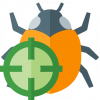 |
5 Ways to Optimize Tests for Continuous Integration Many teams have existing automated test suites that are not included in a continuous integration program. Maybe the tests take too long to execute, or they are not reliable enough to give accurate results. Here’s how to assess your test suites in terms of value added and time to execute, along with five proven strategies to optimize those suites for CI. |
|
 |
Participating in Code Reviews as a Tester Code reviews are a popular method of catching bugs early in development through peer-reviewing someone’s code. But perhaps more important than catching bugs, these reviews also serve as a chance to see how something is built and have a conversation about it. Because testers question software differently from developers, it’s important that we participate in this knowledge-sharing practice. |
|
 |
Fault Injection Testing for an IoT Device If someone says a feature is not testable through the methods we use, it does not absolve us from the responsibility of testing; that's still our job. When this team was given a new connected device to test, they realized their existing functional testing skills wouldn't be sufficient to test the product's core algorithm. So the team got creative, learning the source code and introducing fault injection, figuring out new ways to test. |
|
 |
How to Ruin Your Behavior-Driven Development Test Scripts We get it: Writing good, reusable, effective test scripts is hard. It consumes a lot of time and energy, and you have to learn too much about automated testing and test implementation. Just give up and produce some complicated, messy, and ineffective scripts! But why waste time figuring out how to do that on your own? Here are the best practices to ruin your BDD test scripts completely. |
|
 |
Measuring the Performance of Your Operations Center Many organizations have problems with consistently tracking and measuring system outages. Issues aren't logged, admins make changes to systems without going through change management, and a high number of issues turn out to be recurring problems. Implementing a performance measurement process calculates system reliability and can help you improve consistency. |
|
 |
Shifting Testing Left Is a Team Effort There is a lot of talk in the testing world about shifting left. Basically, “shift left” refers to moving the test process to an earlier point in the development process, independent of the development approach. This article explores a case in which shift-left has been applied, and the lesson is that shifting left cannot be achieved by testers alone—it must result from a team effort. |
|
 |
How Much of Debugging Software Is a Tester’s Responsibility? Everyone knows a tester's job is to help improve the quality of the software under test. But it gets a little murky when you try to define the boundary between testing and debugging. There's no clear delineation: Some testers would state how to reproduce the bug, write the report, and hand it off, while others learn the code, find the root cause, and even create builds to fix the bugs. How much is useful, and how much is too much? |
|
 |
Testing to the Usability Standards Our Customers Expect Allowing minor defects to be included in releases impacts our customers’ perspective on software professionalism. We’ll never catch every weird, obscure bug, but there are some design elements where they tend to lurk. By focusing our testing efforts on these areas—or at least not neglecting them—we can catch more issues before our customers do. |
|
|
|
Getting Started with Business Intelligence Testing There’s a bit of hype in terms such as business intelligence, data analytics, and data mining. In testing terms, though, it means working with scripts and databases, often without traditional GUI interaction. But core testing skills—analysis, synthesis, modeling, observation, and risk assessment—will still help you go far in business intelligence testing. |
|
 |
3 Keys to Mastering Test-Driven Development From his decade of teaching thousands of professional software developers how to be effective with test-driven development, David Bernstein has learned that there are three key ingredients for mastering TDD: understanding what it really is, making code reliably testable, and getting hands-on experience. Let’s look at each of these factors to see what it takes to use TDD effectively on your projects. |
Pages
Upcoming Events
| Jun 02 |
AI Con USA Bridging Minds and Machines |
| Sep 22 |
STARWEST Software Testing Conference in Anaheim & Online |
| Oct 13 |
Agile + DevOps USA The Conference for Agile and DevOps Professionals |











